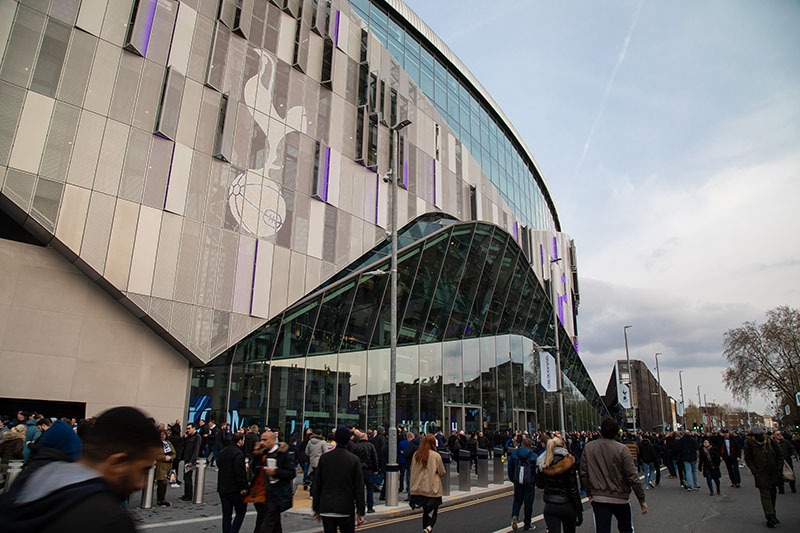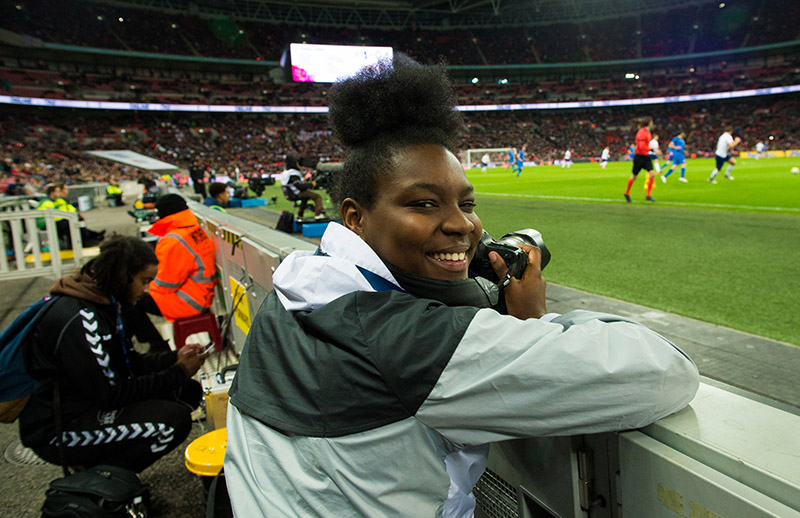
Search: ' London riots'
Stories

Many children have a natural obsession with the game and Football Beyond Borders are having huge success in channelling that enthusiasm into improving young people’s education
 Damian Hall tells the sorry tale of a a fragile winger who valued the art of passing over the business of winning and made a mistake leaving Arsenal
Damian Hall tells the sorry tale of a a fragile winger who valued the art of passing over the business of winning and made a mistake leaving Arsenal
Alexander Hleb was a classic Arsène Wenger signing. He was relatively unknown in England, technically excellent, yet cursed with a pathological preference for a pass over a punt at goal. When the six-time Belarus player of the year and sometime captain of the national team arrived in 2005, he did not look like a footballer. Hleb was scrawny, too thin for his shirt – which always went untucked – with socks around his ankles. But he could play.
 Alan Fisher on Tottenham Hotspur’s plans for a new ground
Alan Fisher on Tottenham Hotspur’s plans for a new ground
Given the swingeing cuts in the Post Office over the past decade, the opening of a new branch is newsworthy wherever the location. But for the residents of Tottenham, it has a special meaning. Not only is it a valuable civic amenity restored six months after it was destroyed in the riots that tore through London last summer, it is also a significant symbol of recovery. The community in Tottenham is striving to rebuild its emotional strength as well as the bricks and mortar of a scarred High Road.
 The football world had a lot to say on the London riots. Paul Campbell believes not all of it was sensible
The football world had a lot to say on the London riots. Paul Campbell believes not all of it was sensible
When the violence on the streets of north London began to spread across the country, it was inevitable that football would play a part in the discussion. Like most people, the football writer Ian Ridley watched the news and felt helpless. Unlike most people, however, Ridley thought that the game could somehow save the supposedly broken Britain.
“At times like these, you can feel helpless and peripheral in the sports pages, which always used to be known in newspapers as the toy department,” said a mournful Ridley in his Express column. “Maybe football can play its part in repair and healing, however. The thugs have won a battle. Let us hope they don’t, metaphorically, win the war… As the opium of the masses, it is far healthier than any liquid or substance. Or internet obsession.”
While Ridley bastardised the writings of Karl Marx, Henry Winter drew attention to the teachings of that other political heavyweight, Rio Ferdinand. Without sounding at all worried about the implications of his statement, Winter claimed that Ferdinand’s “voice certainly carries more resonance on inner-city streets than any politician’s”.
Perhaps it shouldn’t be surprising that those working in the football industry afford the game such importance. But it is a little concerning. Men who know a lot about kicking balls aren’t necessarily going to be great at constructing government policy, as Ian Holloway proved in the Independent. The Blackpool manager used his media platform to call for the rioters to stop smashing up shops and be more like Paul Scholes, “who went through his whole career without even a whiff of an off-the-field issue”. Holloway also pinned some blame on the media, arguing that “if the TV cameras weren’t there and we didn’t know about it I don’t think the rioting would have sparked up anywhere else”.
Holloway wasn’t the only football manager with an opinion. The Sun carried a double-page interview with a “sad, sickened and angry” Harry Redknapp, who blamed the riots on a breakdown in family values. “When I was 12 or 13, boys would meet their football manager dressed in a blazer or at least a pair of trousers. Now some of them turn up to see me wearing a pair of jeans with their arse hanging out. They just don’t care.” Stan Collymore called for help: “I want to know where the musicians, actors and rappers are at a time like this?”
With the great and the good of the football universe calling for action, it was left to a man still playing the game to offer some sense. David James, writing in the Observer, wondered how young people could relate to footballers at all: “While it is true that most of us have had a council estate upbringing, most now live away from those communities, enjoying a lifestyle that is light years from the kids we are talking about… Are people really going to listen to a millionaire footballer living in a plush mansion telling people who are struggling to make ends meet on a council estate to calm down?”
James went on to suggest that long-term engagement with a community would make more sense than taking a few seconds to type “Stop the violence” into a mobile phone. With this thought in mind it was heartening to see Peter Crouch and Benoît Assou-Ekotto involve themselves in the clean-up along Tottenham High Road. Football isn’t the opium of the masses and an involvement in the game doesn’t bring with it statesmanlike authority. But footballers, like everyone else, can help their communities most when they’re a part of them.
From WSC 296 October 2011